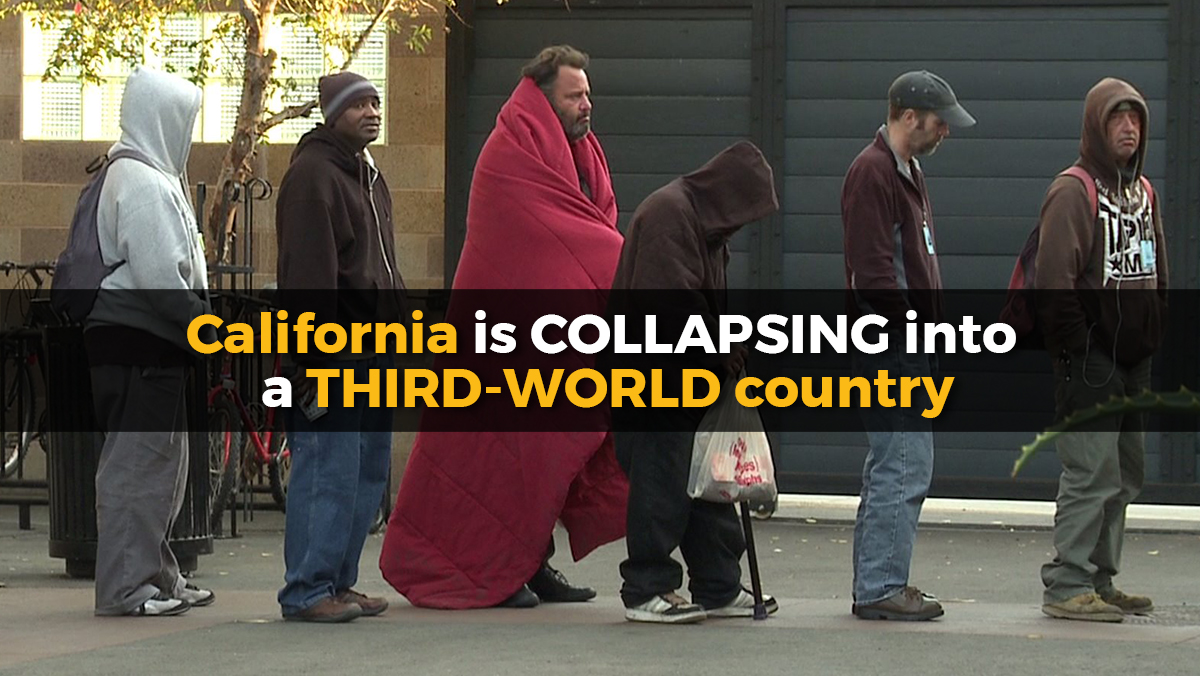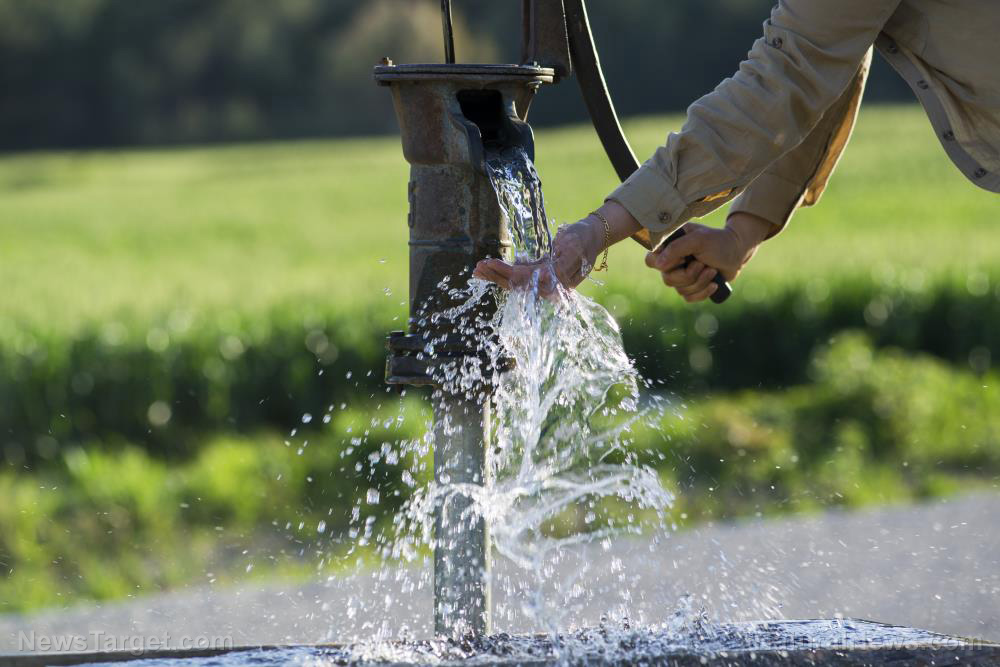100s of millions of dollars in crops destroyed by flooding, and farmers are being told “there’s nothing the U.S. Government can do to help”
04/10/2019 / By News Editors

This is the worst economic disaster for U.S. farmers in modern American history. Our ongoing trade war with China had greatly depressed prices for wheat, corn and soybeans, and so farmers were storing more crops on their farms than ever before in early 2019. And then the floods came. The water moved so fast that the vast majority of the farmers in the affected areas could not have moved what they had stored even if they wanted to, and the scale of the losses that these farmers have suffered is starting to become clearer. According to UPI, “hundreds of millions of dollars in crops” that were destroyed by the flooding were not covered by insurance…
(Article by Michael Snyder republished from EndOfTheAmericanDream.com)
Hundreds of millions of dollars in crops destroyed in Midwestern floods this month were not insured, farmers say. And the losses could leave many without sufficient income to continue farming.
“This uninsured grain issue is really starting to affect people,” said Jeff Jorgenson, a western Iowa corn and soy grower whose farm flooded when the Missouri River spilled over its banks March 12.
Without an extraordinary amount of assistance, there are thousands of farmers that will never be able to come back from this.
One fifth-generation farmer that was interviewed by Fox News said that about 7 million dollars worth of grain was destroyed in his county alone…
Dustin Sheldon, a fifth-generation grain and soybean farmer, watched in horror as the floods that devastated the Midwest began to recede and he could assess the damage to his crops.
He said the record-breaking floods caused about $1 million in losses for his family farm.
“We figured that there is roughly $7 million worth of grain sitting in these grain bins here just in our county alone that is either destroyed or inaccessible right now that we won’t even be able to get to or sell,”he said. “Financially, there’s a lot of farmers that can’t come back from that and they may be out of business.”
According to government regulations, when stored crops get flooded they must be destroyed.
And unfortunately, the government also doesn’t have any sort of a program to cover those losses. In fact, USDA Under Secretary Bill Northey told Reuters that “there’s nothing the U.S. government can do to help”…
Hundreds of farmers may be out of luck trying to recuperate losses after last month’s historic floods in the Midwest. Millions of bushels of grains were destroyed in more than 800 on-farm storage bins – mostly in eastern Nebraska and western Iowa – and U.S. Department of Agriculture (USDA) Under Secretary Bill Northey recently told Reuters that, under current laws and disaster aid programs, there’s nothing the U.S. government can do to help.
Of course Congress could pass a law to change all that, but right now that is not happening and it does not appear likely to happen.
This is yet another example that shows who we send to Congress really matters. If I had won my race for Congress, I would be endlessly causing havoc until our farmers got the emergency assistance that they desperately need.
Because as it stands, thousands of farmers that have been financially ruined by this flooding are going to be forced out of the profession forever.
For 71-year-old farmer Bruce Biermann, it looks like the end has come after the floodwaters destroyed more than $100,000 worth of his stored crops…
The two grain bins on Bruce Biermann’s farm near Corning, Missouri, could not withstand the strong currents of the Missouri River.
With four feet of water pressing from the outside and grain swelling from moisture inside, the bins burst.
At 71, Biermann is looking at more than a $100,000 loss.
Because of the trade war, he had been storing 12,000 bushels of corn and 8,200 bushels of soybeans until prices went up again.
Now all of that hard work has been washed away, and no help is on the horizon.
33-year-old farmer Travis Green has a similar story…
Travis Green, 33, who operates farms in both Kansas and Nebraska, stored 25,000 bushels of yellow corn in a pair of grain bins in White Cloud, Kansas, near the Missouri River.
One of the bins “literally just blasted open,” after it filled with floodwater and the other was uprooted— destroying an estimated $100,000 worth of corn. On top of that, he’s unsure whether he’ll be able to plant anything this year because of the water damage.
Even before the floods came, U.S. farm incomes had already sunk to a 12 year low. America’s farmers need our help more than ever, and yet Congress has chosen to abandon them.
Overall, AccuWeather is now estimating that the total amount of economic damage from all of this flooding will reach 12.5 billion dollars…
AccuWeather estimates the total damage and economic loss caused by record-breaking flooding in the Midwestern U.S. this spring will total $12.5 billion, based on an analysis of damages already inflicted and those expected by additional flooding, as well as the lingering health effects resulting from flooding and the disease caused by standing water.
Personally, I think that number is too low, but we will see.
And remember, a lot more flooding is still on the way. Just check out what one expert is saying…
“We’re not done. There is what amounts to a wall of water that will cross the state of Missouri, by way of the Missouri River, and meet a rapidly rising Mississippi River,” Dr. Hurburgh says.
The snow in Wisconsin and Minnesota is melting this week, and flooding is expected in northern Illinois and southern Wisconsin. That’s all going to end up in the Mississippi River, at a point, he says.
In addition, a lot more rainfall is coming too. In fact, powerful storms are set to dump up to 6 inches of rain across the southern portion of the country through Monday night…
In addition, the prolonged period of wet, stormy weather will only exacerbate and worsen the ongoing flooding issues on the Mississippi River and its tributaries.
Through Monday night, the highest rainfall totals of 3 to 6 inches are forecast to extend from eastern Texas and western Louisiana into southeastern Arkansas, northern Mississippi and western parts of the Tennessee Valley.
Overall, at least a million acres of U.S. farmland were covered by water by the recent floods. It is a disaster that we will be talking about for a very long time to come.
Unfortunately, time is not on the side of the thousands of farmers that have been financially ruined by this great tragedy.
Congress needs to act, and they need to do so quickly.
Read more at: EndOfTheAmericanDream.com
Tagged Under: catastrophe, Collapse, crops, economics, economy, finance, Flooding, food crops, food supply, government policies, harvest, natural disaster
RECENT NEWS & ARTICLES
COPYRIGHT © 2017 COLLAPSE.NEWS
All content posted on this site is protected under Free Speech. Collapse.news is not responsible for content written by contributing authors. The information on this site is provided for educational and entertainment purposes only. It is not intended as a substitute for professional advice of any kind. Collapse.news assumes no responsibility for the use or misuse of this material. All trademarks, registered trademarks and service marks mentioned on this site are the property of their respective owners.




















